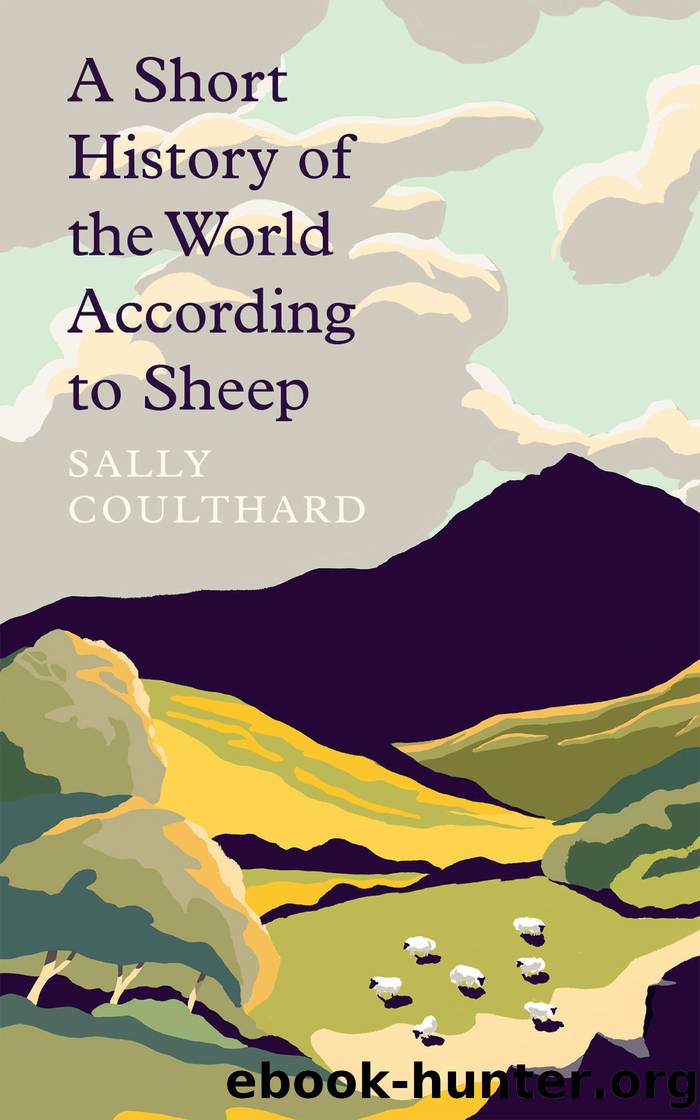A Short History of the World According to Sheep by Sally Coulthard

Author:Sally Coulthard [Coulthard, Sally]
Language: eng
Format: epub
ISBN: 9781789544220
Publisher: Head of Zeus
10
‘SHEEPE HATH PAYED FOR IT ALL’
Wool churches, white monks and the crime of owling
In the space of just one year, between 1338 and 1339, William de la Pole – a wool merchant from Hull – lent King Edward III an eye-watering amount of cash; around £118,000 or, in today’s money, the best part of £167 million.1 And he could well afford to. By the time of his death, in 1366, William was one of the richest men in England and had established the de la Pole family name as one of the great aristocratic houses.
His son, Michael, became Earl of Suffolk and only a century later his descendant got within a whisker of the throne when Richard III named John de la Pole as his heir. Had the outcome of the Battle of Bosworth of 1485 been different, and Henry Tudor lost, the direct descendant of a fleece dealer would have become king of England. The meteoric rise of this spectacularly successful entrepreneur, from keen-eyed trader to nobility in one generation, reflects a moment in England’s history when wool made the country very, very wealthy indeed.
By the time William de la Pole was born, the English wool business had been trundling along for centuries. After the Romans landed on English shores in AD 43, they soon established a well-organized wool industry. The country already had its native, small Soay-like horned sheep that had wandered the Isles since the Bronze Age, but we know from historical records that by AD 300 the wool that was coming out of Britain was, according to the geographer Dionysius Periegetes, ‘so fine that it was comparable to a spider’s web’.2
One idea is that the Romans brought their own flocks over from the Mediterranean – fine, white-woolled sheep that preferred the rich grasslands, marshes and fens of the south and southeast of England, regions that were to become the great wool-producing areas such as Suffolk, Norfolk and the Cotswolds.
It’s difficult to know what the English sheep and wool ‘industry’ looked like after the Romans finally abandoned Britain in AD 410 and in the years we erroneously call the ‘Dark Ages’; we just don’t have many sources to draw on. But the few documents that do exist suggest plenty of people were keeping sheep, especially for wool. One of the earliest records in 697 shows King Wihtred of Kent granting pastureland for 300 sheep in ‘Rumining seta’ (now Romney Marsh) to St Mary’s Church, Lyminge.3
In 796 Charlemagne, king of the Franks, wrote to Offa, king of Mercia in Anglo-Saxon England – the letter is the oldest surviving diplomatic document in English history and mentions, among other things, the woollen cloaks the Mercians were trading with the Franks. The letter hints at an older trading arrangement in woollen cloth; Charlemagne mentions that his subjects would dearly like to buy cloaks of the same style ‘as they used to come us in old times’.4 And, as we saw in Chapter Five, the fact that we have hundreds of ovine
Download
This site does not store any files on its server. We only index and link to content provided by other sites. Please contact the content providers to delete copyright contents if any and email us, we'll remove relevant links or contents immediately.
| Africa | Americas |
| Arctic & Antarctica | Asia |
| Australia & Oceania | Europe |
| Middle East | Russia |
| United States | World |
| Ancient Civilizations | Military |
| Historical Study & Educational Resources |
Magic and Divination in Early Islam by Emilie Savage-Smith;(1533)
Papillon by Henry Charrière(1432)
Bohemians, Bootleggers, Flappers, and Swells: The Best of Early Vanity Fair by Bohemians Bootleggers Flappers & Swells- The Best of Early Vanity Fair (epub)(1409)
Ambition and Desire: The Dangerous Life of Josephine Bonaparte by Kate Williams(1389)
Twelve Caesars by Mary Beard(1315)
What Really Happened: The Death of Hitler by Robert J. Hutchinson(1163)
Operation Vengeance: The Astonishing Aerial Ambush That Changed World War II by Dan Hampton(1162)
London in the Twentieth Century by Jerry White(1147)
The Japanese by Christopher Harding(1133)
Time of the Magicians by Wolfram Eilenberger(1126)
Twilight of the Gods by Ian W. Toll(1120)
Lenin: A Biography by Robert Service(1076)
The Devil You Know by Charles M. Blow(1026)
A Social History of the Media by Peter Burke & Peter Burke(976)
Freemasons for Dummies by Hodapp Christopher;(965)
Napolean Hill Collection by Napoleon Hill(943)
Henry III by David Carpenter;(919)
The Rise and Triumph of the Modern Self by Unknown(913)
Richard III (The English Monarchs Series) by Charles Ross(908)
